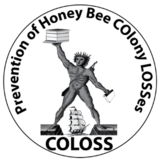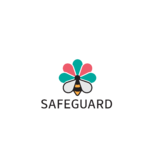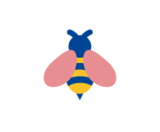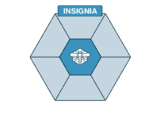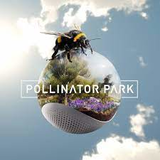Giving Beekeeping Guidance by cOmputatiOnal-assisted Decision making
Key initiatives
COLOSS (Prevention of honey bee COlony LOSSes) is an international, non-profit association headquartered in Bern, Switzerland that is focussed on improving the well-being of bees at a global level.
We are composed of scientific professionals that include researchers, veterinarians, agriculture extension specialists and students. We understand that cooperation and open dialogue are key to better understanding the reasons why bee populations are threatened in today’s world.
The 2021 EU Pollinator Week is organised by Members of the European Parliament under the chairmanship of Martin Hojsík and BeeLife European Beekeeping Coordination, in partnership with the European Commission, the Slovenian Presidency of the Council of the EU, and the European Food Safety Authority (EFSA).
From 2012, the European Bee and Pollination Week, informally named "Bee Week", was held annually in the European Parliament in Brussels. In 2021, the event was renamed to EU Pollinator Week in an effort to achieve a more inclusive framework of cooperation which focuses on all types of European insect pollinators.
EU Pollinator Week is an event that focuses on the importance of pollinators for healthy ecosystems, our wellbeing, and culture. In 2021, it will be an online event held on 27-30 September with the theme "A New Deal for Pollinators".
Safeguard brings together world-leading researchers, NGOs, industry and policy experts to substantially contribute to Europe’s capacity to reverse the losses of wild pollinators. Safeguard will significantly expand current assessments of the status and trends of European wild pollinators including bees, butterflies, flies and other pollinating insects.
All around Europe people are making efforts to address the dramatic decline of pollinators. We all need to work together to tackle the challenge effectively. This platform aims to facilitate information sharing – on the problem and what is being done across the EU to solve it – and collaboration between stakeholders.
Whether you are a citizen, scientist, civil society activist, farmer, forester, beekeeper, business, or a representative of public authorities, this site will help you to find useful information and contacts.The Project “Optimised Pest Integrated Management to precisely detect and control plant diseases in perennial crops and open-field vegetables” (OPTIMA) will develop an environmentally friendly IPM framework for vineyards, apple orchards and carrots by providing a holistic integrated approach which includes all critical aspects related to integrated disease management, such as
- novel bio-PPPs use,
- disease prediction models,
- spectral early disease detection systems and
- precision spraying techniques.
It will contribute significantly to the reduction of the European agriculture reliance on chemical PPPs resulting in reduced use of agrochemicals, lower residues and reduced impacts on human health.
INSIGNIA is an innovative project which will build on the wide range of expertise of the applicants developed during previous projects such as the COLOSS “CSI Pollen project”. INSIGNIA involves the development of a protocol for a citizen science monitoring programme using beekeepers to collect biweekly pollen samples from honeybee colonies for analysis for pesticide residues and botanical origin. In the first year, in four EU member states representing all authorisation zones, monitoring using the well-established technique for collecting pollen samples using pollen traps, will be compared with two innovative techniques: the collection of beebread using a novel sampling device, and the use of passive in-hive sampling devices.
Pollinator Park was designed in collaboration with world renowned ‘archiobiotect’ Vincent Callebaut. It’s a 30-minute interactive and emotionally engaging virtual reality experience that immerses you in a futuristic world where man and nature co-exist in harmony, hoping to change your perspective and help turn the tide.

